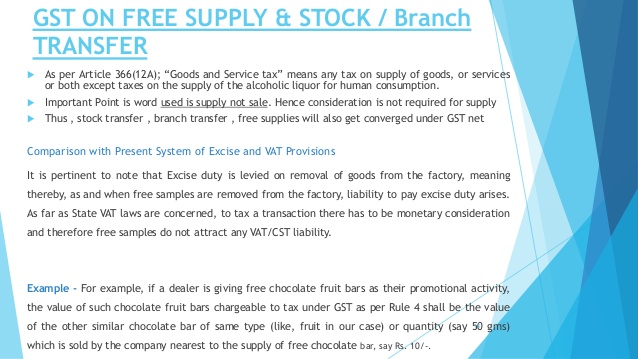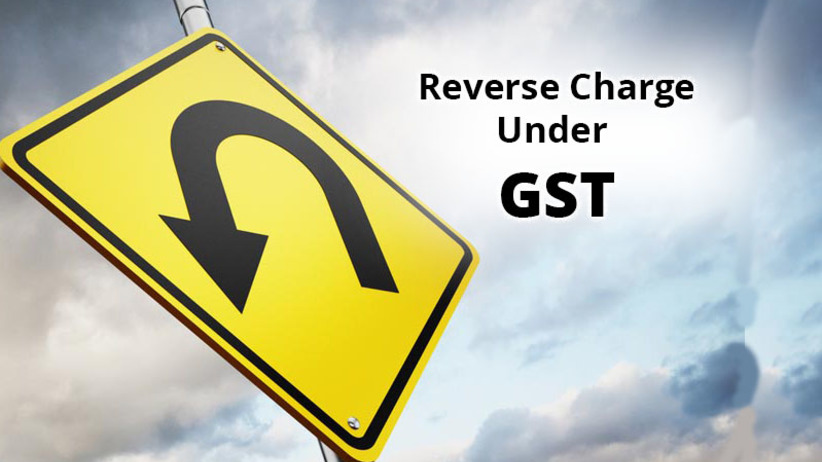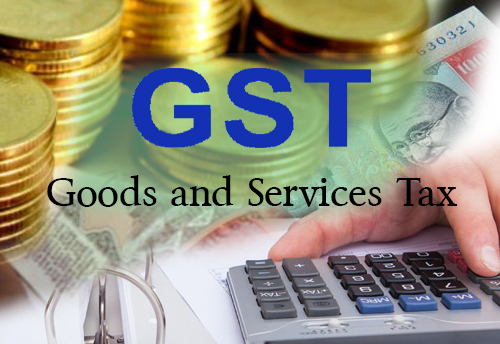Assessment and Audits under Model GST Act – An Overview

ASSESSMENT UNDER GST

Chapter XII of the model GST Act provides the procedure for assessments under the GST regime. The following types of assessments are covered therein:
- Self-assessment (Section 44)
- Provisional assessment (Section 44A)
- Scrutiny assessment (Section 45)
- Summary assessment (Section 48)
- Best judgment assessment
- Assessment of non-filers of returns (Section 46)
- Assessment of unregistered persons (Section 47)
Self-Assessment (Section 44)
- Purpose: The purpose of this section is to provide for Ease of assessment procedure for registered taxable person.
- Procedure: This section provides that every person registered under the Act shall himself assess the tax payable by him for a particular tax period. After such assessment, he shall file the returns required under Section 27.
Explanation to Section 44 provides that where goods received as an inward supply is returned by the recipient to the supplier within six months from the date of relevant invoice, the tax payable shall be equal to the Input Tax Credit (ITC) availed earlier on such inward supply. If the goods are returned after six months of the date of the original supply invoice, the rate of tax applicable will be the rate prevailing on date of such return.
- Illustration: Goods worth Rs. 10,000/- are supplied by X to Y on 16th March, 2016 on which SGST of Rs. 1100/- and CGST of Rs. 1000/- are charged. Y returns goods worth Rs. 5,000/- out of this consignment to X on or before 13th November, 2016 then Y will have to add Rs. 550/- and Rs.500/- on account of SGST and CGST respectively to his output liability in respect of the month of November 2016.
Provisional Assessment (Section 44A)
- Purpose: Provisional assessment applies where the taxable person is unable to determine the value of goods/services; or determine the rate of tax applicable on supply.
- Procedure: The procedure involved in this assessment is as follows-
- The Assessee has to request the proper officer in writing giving reasons for payment of tax on a provisional basis;
- The proper officer may pass an order allowing payment of tax on provisional basis at such rate or on such values as may be specified by him;
- Taxable person is required to execute a bond and may also be required to execute surety or security as proper officer deems fit;
- The bond is binding on the taxable person for payment of the difference between the amount of tax as may be finally assessed and the amount of tax provisionally assessed;
- Proper officer shall pass the final assessment order within a period of 6 months;
- On sufficient cause being shown and for reasons to be recorded in writing, the above period of six months may be extended:
- By the Joint/Additional Commissioner for a further period not exceeding six months; and
- By the Commissioner for such further period as he may deem fit.
- Interest applicable on additional tax amount payable pursuant to the final assessment order, at the rate specified in section 36(1). In case of tax refund, interest on such refund shall be paid as provided under Section 39;
Scrutiny Assessment (Section 45)
- Purpose: The purpose of this section is to provide for the scrutiny of a filed return (and related particulars) by a proper officer to verify its correctness. (Related particulars would primarily mean invoice wise details of inward and outward supplies along with commodity codes)
- Procedure: The procedure involved in this assessment is as follows-
- Cases where satisfactory explanation to discrepancies are submitted:
- In case any discrepancy is found by the proper officer, he shall inform the taxable person of such discrepancies and seek his explanation;
- If the explanations given by the taxable person are found acceptable, he shall be informed and no further action is taken;
- Cases where no satisfactory explanation to discrepancies is submitted:
- If satisfactory explanation is not furnished within 30 days of the date of informing the taxable person (or further period as permitted to him); or
- If taxable person accepts discrepancy but fails to take corrective action within a reasonable period
- proper officer may initiate appropriate action including those under Section 49 (Audit by Tax Authority), Section 50 (Audit by CA or Cost Accountant) or Section 60 (Power of inspection, search and seizure), or
- Proceed to determine tax under section 51A (6) (determination of tax not paid/ short paid/ erroneously refunded etc.) or Section 51B (6) (determination of tax not paid/ short paid/ erroneously refunded etc.)
Summary assessment(Section 48)
- Purpose: Tax assessment in special cases to protect the interest of revenue
- Procedure: The procedure involved in this assessment is as follows-
- Proper officer may, with previous permission of Additional/Joint Commissioner, proceed to assess the tax liability of a person, if any evidence showing a tax liability of such person comes to his notice
- Proper officer can issue an assessment order if he has sufficient ground that any delay will adversely affect the interest of revenue
- If on application by the taxable person or suo moto Additional/joint commissioner considers that order under section 48 is erroneous, he may withdraw such order
- Illustration: AO says that purchases are more than sales, adds 20% gross profit to purchases and assess the tax accordingly. Then assessee appeals against the demand and partial stay is granted. The balance amount is to be paid by the assessee or it will be extorted from the bank account.
Best Judgment Assessment
- Assessment of non-filers of returns (Section 46)
- Purpose: The purpose of this section is to assess the tax liability of taxable person who fails to furnish the prescribed return under Sections 27, 31 or 32
- Procedure: The procedure involved in this assessment is as follows-
- Where registered taxable person fails to furnish the return, the proper officer may proceed to assess the tax liability to the best of his judgment after allowing a period of 15 days from the date of notice
- Tax liability assessment by proper officer shall take into account all the relevant material available gathered by such officer
- Assessment order shall be deemed as withdrawn where the taxable person furnishes a valid return within 30 days of service of the said assessment order
- Assessment of unregistered persons (Section 47)
- Purpose: The purpose of this section is to assess the tax liability of the taxable person who fails to obtain registration despite of being liable to be registered in terms of Schedule III of the Act. The proper officer shall conduct assessment for the period during which the assessee remains unregistered.
- Procedure: The procedure involved in this assessment is as follows-
- Where the taxable person fails to register himself with the authority, the proper officer may proceed to assess the tax liability to the best of his judgment for the relevant tax period
- Reasonable opportunity of being heard shall be allowed to the said taxable person
- Assessment order shall be issued within 5 years from the due date of filing the annual return of the year to which the tax not paid relates
AUDITS UNDER GST

Under Section 46, every registered taxable person whose turnover exceeds the prescribed limit during a financial year shall get his accounts audited by a chartered accountant or a cost accountant and shall submit a copy of the audited statement of accounts and the electronic reconciliation statement as prescribed u/s 30(2) to the proper officer. Following are the types of audit under the Model GST Act:-
- AUDIT BY TAX AUTHORITIES (Section 49):
- This type of audit is prescribed for all assesses. The audit will be conducted at business premises or at office of taxable person at frequencies to be prescribed.
- Intimation of audit is to be issued to the taxable person 15 days in advance and the audit is to be completed within 3 months. This period of 3 months may be extended by the Commissioner by a further period of 6 months, where required.
- During the audit, facility for verification of books of accounts or other documents may be sought for and information and assistance may be required for the timely completion of audit.
- On audit completion, information is required to be provided to the taxable person including the findings during the audit.
- If it is detected that tax remains unpaid/short paid/erroneously refunded or ITC erroneously availed, action under Section 51 may be initiated.
- SPECIAL AUDIT (Section 51):
- This audit is in addition to audit under Section 49.
- It is conducted by external agencies i.e. Chartered Accountants and Cost Accountants nominated by the Commissioner.
- This audit is initiated when Deputy/Assistant Commissioner finds that the value is not declared correctly or credit is not availed within normal limits having regard to the nature and complexity of the case and the interest of revenue.
- The concerned officer may direct such taxable person in writing to get his records and books of accounts verified by nominated professionals.
- The nominated professional shall submit a report to the Deputy/Assistant Commissioner within 90 days.
- The taxable person shall be given opportunity of being heard, prior to using the information gathered for using in any proceeding under the Act.
- If it is detected that tax remains unpaid/short paid/erroneously refunded or ITC erroneously availed, action under Section 51 may be initiated.


 Sales Tax For E-Commerce: 3 Things Small Businesses Should Know
Sales Tax For E-Commerce: 3 Things Small Businesses Should Know  What Is The GST Liability on Free Supply of Goods and Services?
What Is The GST Liability on Free Supply of Goods and Services?  Some FAQs about GST- Understanding Scope and Provisions of GST
Some FAQs about GST- Understanding Scope and Provisions of GST  Understanding the Reverse Charge mechanism under GST and IGST?
Understanding the Reverse Charge mechanism under GST and IGST?  Pros and Cons of GST- Is Ushering in of GST worth Celebrating as media wants us to believe?
Pros and Cons of GST- Is Ushering in of GST worth Celebrating as media wants us to believe?  Arrests and Detention Provisions under GST in Detail- Are these justified
Arrests and Detention Provisions under GST in Detail- Are these justified  ITAT Amritsar: No Section 269SS Violation for One-Time Cash Payment Before Sub-Registrar
ITAT Amritsar: No Section 269SS Violation for One-Time Cash Payment Before Sub-Registrar  Tax Officials Unleash Digital Dragnet: How New Raid Powers Redefine Privacy, Property Rights in India and likely to Fuel Corruption
Tax Officials Unleash Digital Dragnet: How New Raid Powers Redefine Privacy, Property Rights in India and likely to Fuel Corruption  Income Tax Department Rewards for Reporting Tax Evasion: A Comprehensive Guide
Income Tax Department Rewards for Reporting Tax Evasion: A Comprehensive Guide  Forfeiture of Gratuity by Employer- What are the Remedies for an employee- Can employer be challenged?
Forfeiture of Gratuity by Employer- What are the Remedies for an employee- Can employer be challenged?